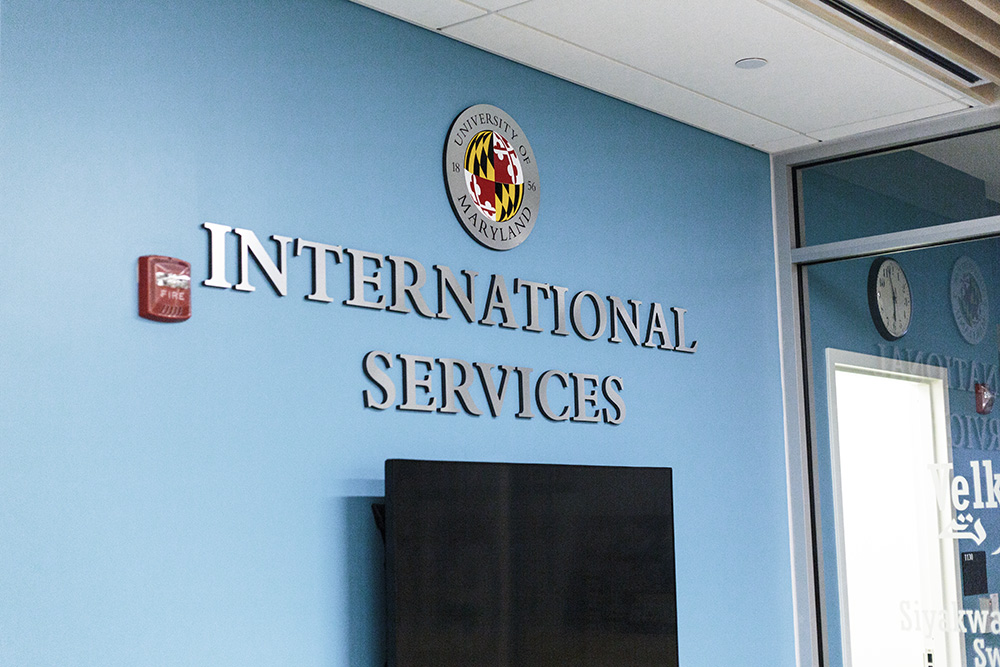Seventy-nine percent of the international graduate student population surveyed at the University of Maryland say their experiences at this university have been “satisfactory” despite concerns such as living costs and stipends, a recent graduate school survey found.
This was the first time the graduate school performed a survey of its international students, who make up 33.6 percent of graduate students and 4.6 percent of undergraduates. The survey will help the graduate school better help international students through programs and services and “gives us some data to work with [to improve international students experience],” said Mary Carroll-Mason, communications officer for the graduate school.
“This survey shows that international students feel not only welcome on this campus, but also they feel safe,” said Jeffrey Franke, the graduate school’s interim dean. “They also find that they’re satisfied with their education.”
The graduate school, the International Student and Scholar Services office and the Graduate Student Government sent the survey to all 3,570 international graduate students through email in October. Forty-two percent of students who received the survey completed it. The survey was not statistical.
The questions, which ranged from experiences with teachers to where students intend to go post-graduation, were based on personal rather than institutional experiences, said Sifan Xu, a Chinese doctoral communication candidate who took the survey. While Xu said the ISSS office has always been very helpful and friendly to him in interactions, he noted that he is uncomfortable with a $125 fee every semester that will apply to new incoming international students starting in the fall 2017 semester.
“This is really bad timing, especially when you consider the new [federal] administration,” Xu said. “This kind of gesture can be interpreted as really wrong.”
Xu added international students can sometimes feel like this university is treating them like a “cash cow.” International students pay out-of-state tuition, which equals $17,617 per semester for full-time graduate students and $16,722.50 for undergraduates.
Along with gauging student satisfaction, 77 percent of international students surveyed said they thought the university respected their beliefs, and 81 percent said they rarely or never felt discriminated against by their American counterparts. Ninety percent of respondents said they rarely or never had violent interactions with American students.
Xu said he personally has never felt hostility toward him as an international student, but noted that he and potentially other students choose to socialize with people who share the same views, which may isolate him from opposing viewpoints. He added he has seen social media posts from university students that have made him uncomfortable, but has still always felt safe on the campus.
The survey results may have been different if it was conducted right after President Trump took office, he said. General hate bias incidents had reportedly increased the week after Trump’s election, with three incidents taking place within three days.
Main areas of concern among international graduate students were in the categories of stipends and costs of living — issues that apply to both international and domestic graduate students, according to a news release from the graduate school that divulged the survey findings. This university’s minimum stipend for a nine-and-a-half month assistantship is $16,144, according to the Office of Research Administration’s website.
The graduate school plans to address these concerns in coming months, the release stated.
In December, the GSG formed a taskforce as part of an effort to improve options for affordable housing for graduate students, and last Thursday hosted an affordable housing town hall to address the need in the city for more options. Graduate Hills is currently the only graduate student housing partnered with this university.
Franke added that a lack of graduate student housing could have a negative impact on international and domestic graduate students’ social lives. It adds stress on top of getting acclimated to a new country and culture.
“It’s clearly obvious that we don’t have graduate student housing,” Franke said. “… We just need to build that [international and graduate student community] a little more. We’re working with our partners [International Student and Scholar Services and Graduate Student Union] to smooth that transition.”



